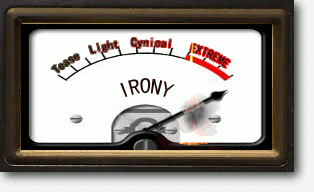We’ve all had some fun with Jonathan “Speak-o” Gruber. His quotes have shown that lefties were dead wrong when they said that absolutely nobody believed that subsidies would be limited to state exchanges. Absolutely nobody . . . except for the principal architect of the law. It’s a funny story, and the word “speak-o” adds to the humor . . . and his pathetic denials are a stand-in for the lefties’ pathetic and dishonest denials with respect to the language of the law itself.
All well and good.
But note the lefties’ response. The lefties will say (and are already saying): Jonathan Gruber may have advised Congress. The law may have been written based on his models. But he didn’t cast a vote in Congress. His intent didn’t matter. And everyone who voted for the law believed subsidies would be available on federal exchanges.
Now: I don’t believe this is true. I think most of them didn’t read the law. To the extent they did, they wrongly assumed all the states would set up exchanges — so yeah, they assumed universal availability of subsidies . . . through state exchanges.
But so what? Let’s pretend that everything they say about Congress’s intent is true. It doesn’t matter — because that’s not what the law says.
Let me cite an example of mine from 2010. (I’m going to tweak it by adding two zeroes to each number, to make the political parallel more realistic.)
Assume you make $5 million a year. The legislature passes a law imposing a hefty tax on “people making over $10,000,000 per year.” Since the law does not apply to you, by its plain terms, you do not pay the tax. However, you are convicted after a judge finds irrefutable contemporaneous evidence showing that all legislators who voted for the tax intended to impose it on people making over $1,000,000 a year. The judge, an “intentionalist,” finds that the intent of the legislature controls, regardless of the plain meaning of the law.
Under the plain language of the law, the tax does not apply to you. Applying the intent of the legislators, it does. Which is the better interpretation?
I will tweak the example further: the IRS passes a rule that says: for this law, $10,000,000 actually means $1,000,000. So anyone who makes over a million bucks owes us more tax.
And if you make over $5 million, but less than $10 million, Obama’s IRS is saying: You pay the tax, even though the law says you don’t have to. It doesn’t matter what the law says. Listen to what we say. And if you don’t, we will send men with guns to your home, to drag you off to a cage.
Lefties, who love taxing millionaires, would support the IRS on this. Tax the millionaires by hook or crook, and the process be damned. You know I’m right.
How is it that the law could end up saying $10,000,000 instead of $1,000,000? Different ways. It could be a typo (which, for those unfamiliar with the term, is like a “speak-o” — but in written form). But it wouldn’t have to be a typo! It could be that the staffers or lobbyists who wrote the law believed the tax would (or should) apply only to those making over $10,000,000. And, if the law was rushed into print, maybe absolutely nobody in Congress read it, and just all assumed it said $1,000,000.
As I understand the arguments of those who look to “intent,” though, a magical thing happens when Congress votes on the law. Even if the staffers meant $10,000,000 when they wrote the text, that term magically “means” $1,000,000 when Congress enacts the law — because their “intent” is that the tax apply to those making over $1,000,000.
And if that hypothetical actually happened, you would have lefties making all the same types of arguments they are making about ObamaCare. Absolutely nobody said in floor speeches or committee reports that the tax was limited to those making over ten million! Everybody talked about the “millionaire’s tax”! It was obvious what everybody was thinking! And all the news reports said it was a tax on people making more than a million dollars! Why, this is rank revisionism! Look, here’s our brief from Nancy Pelosi and thirty other political hacks, saying we all meant to say $1 million, and not $10 million!
The way to defeat these arguments is to say: It doesn’t matter. The law says what it says, and you can’t hold citizens accountable to pay a tax when the plain language of the law says they don’t owe it.
P.S. Note well: those who appeal to “intent” over text always make it sound like this problem has an easy solution: simply send it back to Congress and let them change it, if they got it wrong. But, as the ObamaCare example shows, that is often impossible, because the composition of Congress changes. What was possible in 2010 is simply not possible today. So, if you’re a judge, you’re stuck. You have a text, and you have (should you choose to consult it) a wide range of legislative history you could consult. You, as a judge, must decide what the law means.
Are you going to make that decision according to “intent”? Or according to the plain language of the text?
Your answer determines how much power you want to give to the dishonest left.



